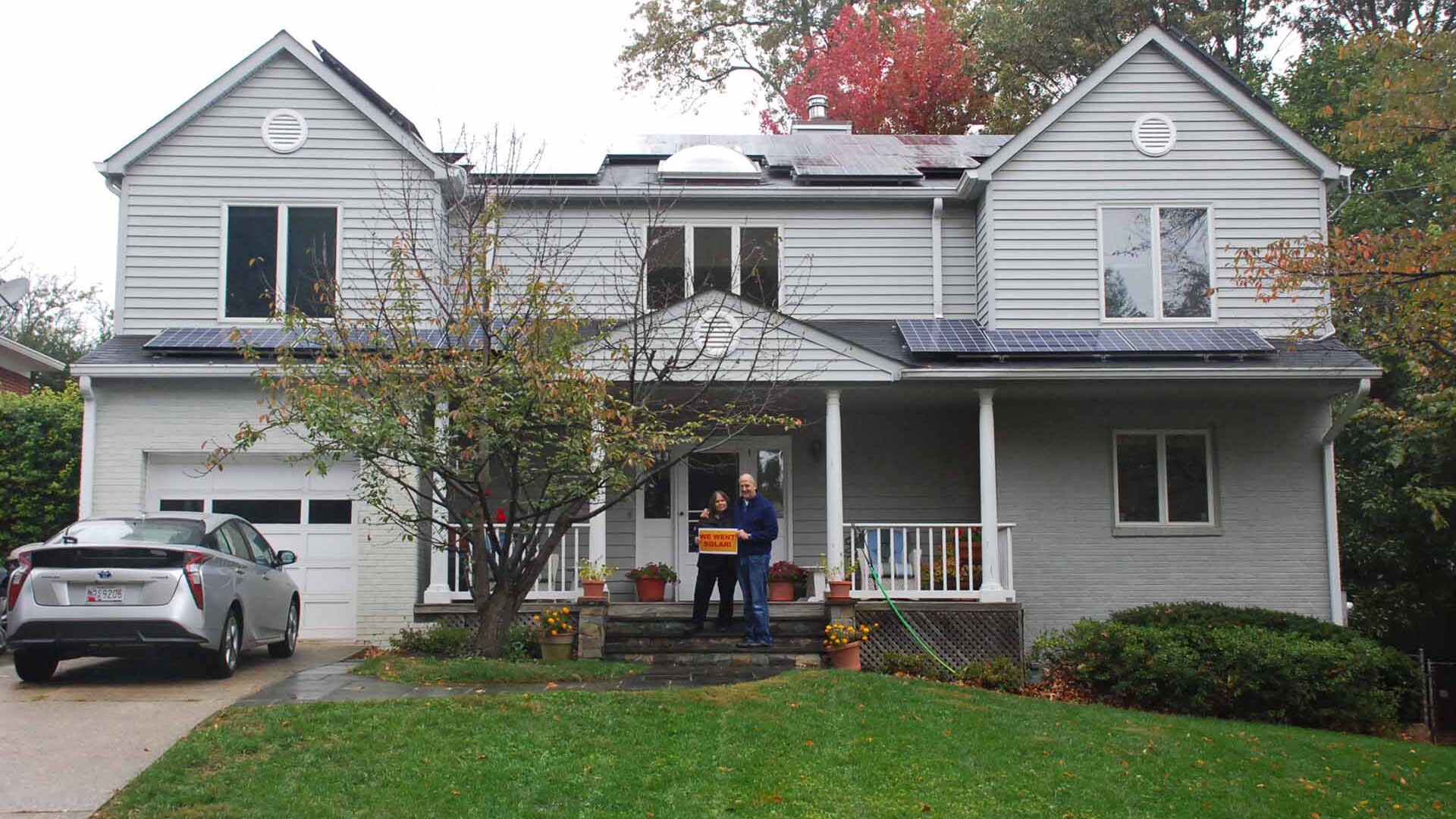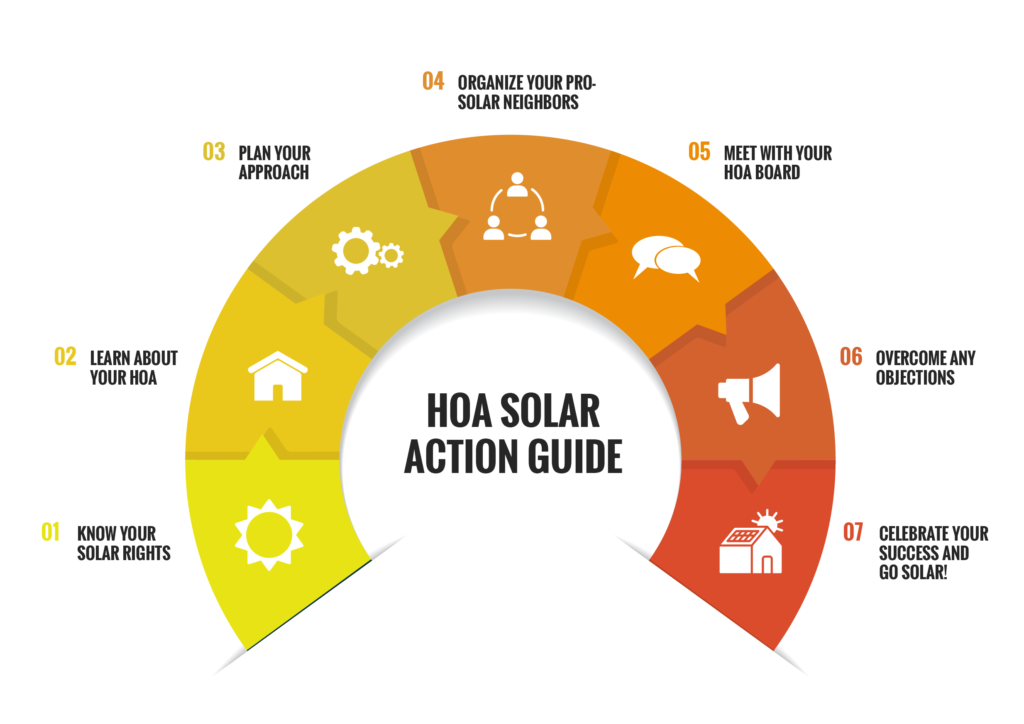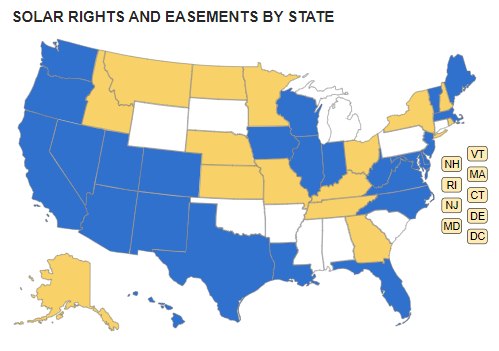HOA Solar Action Guide
- Guide

Download the HOA Solar Action Guide
Learn how you can work with your homeowner’s association to install solar on your home.
Your HOA should respect your solar access rights
Everyone should have the right to go solar on their property. Some states enshrine that right with solar access laws, which prohibit local governments and homeowners’ associations (HOAs) from preventing homeowners from going solar. Unfortunately, not every state has these laws; even in some that do, HOAs may still have outdated policies that block homeowners’ solar access and propagate solar myths about aesthetics and property values. Our guide can help you overcome HOA objections to your solar installation and to provide practical advice to make your HOA solar-friendly.

Step 1: Know your solar access laws

Most states offer at least some protection for solar access, but the details can vary widely. Before you get started, research the laws in your state. We recommend starting with Solar Rights & Easements by State from the Community Associations Institute.
Step 2: Learn about your HOA
Your HOA may have a positive solar access policy already, but more than likely it does not. HOAs are private organizations, not governments. This means that members of an HOA do not have the same rights and protections that you would expect from your local government. Nevertheless, as representatives of the residents, the HOA is accountable to the residents, and they can change policies, including those affecting solar installations. Our guide assumes that you will need to find a way to change your HOA’s policy regarding solar. This may involve addressing outdated myths about solar on homes, including concerns about aesthetics or the effect of solar energy on property values. The complete guide has a entire section dedicated to addressing those myths.
Step 3: Make your case for solar access
If your HOA has placed unreasonable restrictions on your right to go solar, the next step is to join with your neighbors to convince your HOA Board to reform their policies. We’ve found that the best way to do this is to make your case directly to your neighbors and convince them to support you. Most HOAs are willing to change their policies if the residents demand it, and we’ve found that most people will support your right to go solar, even if they don’t plan to do so themselves. The complete guide lists everything you’ll need.
Step 4: Get your pro-solar neighbors on board
These people are your new best friends. As we mentioned above, HOA boards are not necessarily democratic in the same way your local city council is, but they should be – and generally are – responsive to the concerns of their members. Our experience is that most reasonable people will support your right to go solar if presented in the right way, and the complete guide is designed to help you do just that.
Step 5: Meet with your HOA board
Once you have the support of your neighbors, it’s time to make your formal case to your HOA’s governing board. The important things here are to make your case compelling, show that other residents support you, and directly ask them to change the policy.
Step 6: Overcome solar access objections
Like some politicians, your HOA board may try to avoid giving you a direct or immediate answer. You may need to continue to talk with your neighbors to show support, or reach out to the local media to rally more support. Your HOA may ask for your solar installation to be reviewed, or they may issue a decision that conflicts with your state’s solar access law. The complete guide covers several of the possible outcomes; for the others, you can always get expert help from our Solar Help Desk.
Step 7: Celebrate your success and go solar!
If your board doesn’t raise objections, congratulations! You’re free to go solar and – more importantly – you’ve secured the right of future residents of your HOA to go solar as well. This situation represents one of the potential roadblocks to going solar in the U.S., and those barriers will only fall if we all make knocking them down a priority. We hope you’ll consider going solar with Solar United Neighbors.
Solar access myths & facts
Talking with your neighbors and HOA board may reveal some misconceptions about solar energy. The complete Guide will help you address questions about the impact of solar on home values, solar energy aesthetics, glare, and risk of fire.
Solar access success stories
Our members and allies are already using the tactics in our Guide to successfully make HOA’s more solar-friendly in places like Virginia, Pennsylvania, and West Virginia. We hope you’ll have as much success as they did, and that we can add your story to the next version of the Guide!
Get the latest on solar straight to your inbox.
Fight for your solar rights.
Everyone has the right to go solar. Spread the sunshine nationwide and in your local community by taking action, joining events, and more.